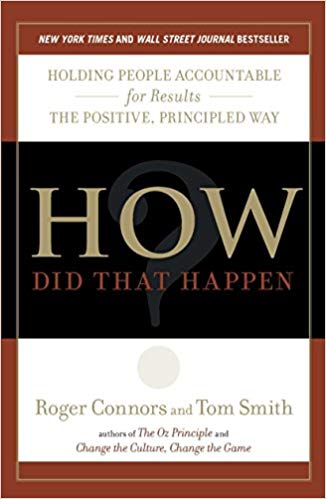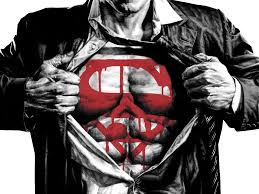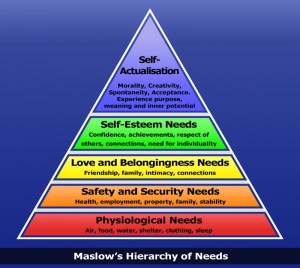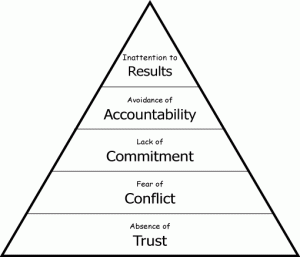Accountability is not a 4 Letter Word When Fixing Sales Problems
Are your salespeople accountable? When I ask you that question what is the first thing, first emotion, you feel? Why do you think that is? Did less than 60% of your salespeople hit or exceed their sales goals last year? Has someone on your senior management team said: “ we need to hold our salespeople more accountable “? How do we improve accountability and achieve the profitable sales growth we want and need?
If you have experienced discussions about sales accountability lately this post is for you and your team and you all need to read: How Did That Happen by Roger Connors and Tom Smith of the Performance Group.
I was asked to help a company whose sales had stalled for the last five years. In the first senior management team meeting I attended I heard:
The furious young President and CEO shared: “We need to hold our regional sales managers accountable to their growth goals”
Marketing quickly chimed in: (or threw kerosene on the fire…you pick): “Why can’t our salespeople follow up on the good leads we send them, if they did we would be hitting our numbers?”
Engineering decided they had best pile on: “Why can’t sales sell the innovative new products and features we launched”?
Which triggered the CFO to look up from his laptop and share: “ We need to start getting a return on all the investments we made to grow this business”
The COO needed to contribute; “Why can’t sales provide accurate forecasts? Its killing our manufacturing efficiencies, inventory costs and on time shipment goals”?
The Partner from the Private Equity Firm who is now attending meetings due to poor financial performance added: “ When will we see results? What specifically are you doing to turn these results around? Do we have the right salespeople?”
Their HR Vice President added: “Our salespeople who work from their homes need to stop cutting their grass and golfing and get out in front of customers and make some sales, they need to put in 12-15 hour days like we do”
I wish this was a rare meeting and the comments were unusual…but they were not and unfortunately I have heard the above or something similar with many of my past clients. Everyone assumes the solution is sales just needs to work harder and become more “accountable”. Some managers assume salespeople hate to be held accountable, as if it will somehow hurt their motivation. Nothing could be further from the truth.
“Top Performing Salespeople Hold Themselves Accountable”
– Mark Allen Roberts
The reality is top performing sales super stars love to be held accountable and serve on teams of accountable leaders. Sales super stars are like elite athletes. They are very competitive, they train relentlessly, and they are always learning and practicing their craft. From my observations over the past 35 years, most elite salespeople were athletes and now sales is their sport. Top performing salespeople own their goals and strive each day to hit their objectives and drive profitable growth for their organizations.
So where’s the disconnect? …And more importantly how do we fix this problem quickly?
The authors of How Did This Happen do an excellent job of explaining that accountability has two sides:
Taking Accountability For Yourself
Holding Others Accountable
What we often quickly assume, as the team above thought was a sales accountability problem is actually an organization wide accountability issue. (Sorry) While all of your team is firing missiles from their silos, the true problem is your entire organization lacks a culture of accountability and this must be corrected.
Have you ever worked for someone who assigned you very specific objectives and held you accountable to your goals but they never follow up on emails, signatures needed, budget approvals and other tasks they committed to? How did that make you feel? Were you more or less motivated to achieve your objectives?
So if our manager is accountable it impacts our performance? ….Absolutely!
The good news is your team is motivated by meaningful work. They want to help the organization grow profitability and in the process contribute and one day retire from your organization.
The elite salespeople are accountable. They are out everyday hunting for opportunities to serve your current customers and searching for new accounts with problems your organization solves.
Still doubt your salespeople are accountable?
Let me ask you a few questions…
Where else in your organization are people as accountable as your salespeople?
- Their sales are tracked real time, you can see their activity and results
- You can see what they plan to do next in the CRM
- You can read what happened in the last meeting in the CRM
- In your weekly call in meetings they share what they set out to do, what they did, what they will do and what help they may need from you
- You can see who they are selling, what they are selling them and at what price
- You get reports showing profit by customer, salesperson, region, district, country (there is no hiding in sales)
- Their expense reports tell you if they are making good decisions based on return on investment, if they are managing their time appropriately and you can see where they have been and how long they were there
- They often do weekly call reports
- You complete customer surveys and ask about their service
- Other executives attend customer meetings with them
- If they do not make the sales to achieve their sales goals they do not make the targeted income they were promised
So again, are you sure you have a sales accountability problem?
The book: How Did This Happen is brilliant!
It introduces the concept of an accountability sequence that is broken down into two parts.
The first half is the outer ring as they call it. Here is where you form, communicate, align and inspect expectations. This is where most managers fail. This step is about your managers setting clear reasonable expectations.
The second half is the inner ring where you engage in accountability conversations in a professional way to deal with unmet expectations. (Emphasis on words professional way)
What I enjoyed most about this book is it sets the tone to lose all your emotional assumptions about accountability and it teaches you how to be and lead your teams in a professional and accountable way.
This book provides many tools and assessments to help you determine where your team is in the competency of accountability and guides you how to improve.
The book shares five reasons people do not hold others accountable:
- Fear of offending someone or jeopardizing a personal relationship
- The feeling they lack the time to follow up
- A lack of faith that the effect will make a difference
- A worry that by holding someone else accountable their may expose their own accountability failures
- A reluctance to speak due to fear of potential retaliations
(Did any of the above resonate with you and your team?)
Lets get back to the small company. The senior management team meeting ended and the CEO and CFO asked I stay in the room. They were concerned I was taking notes but did not offer any advice or solutions. I shared I have a process and I have noted everyone’s concerns assumptions and perceptions and now I need the voice of your customers and your salespeople and we will develop a strategy to improve your bottom line results.
What did I find after spending just under six months in the market traveling with their salespeople and and doing voice of customer interviews with top distributors and end customers?
- Customers openly shared how difficult the company was to work with
- Their order follow up was poor and orders often had pricing errors
- On time delivery was under 60% hurting distributor relationships with their customers
- Their product was plagued with quality issues resulting in warrantee claims
- Warranty claims just after purchase negatively impacted distributor relationships with end users
- New products over the past 5 years were historically launched before they were ready. Distributors now wait at least 18 to 24 months before buying new products because they feel the company will have “worked all the bugs out by then“
- Their salespeople, regional managers and distributors were never trained in commercial selling skills
- Their salespeople were exhausted and spending more time of tracking late orders and warranty parts than selling
- Their customer service team was never trained and over 70% of incoming calls went to voicemail
- Their sales compensation plan was so complicated their salespeople did not understand it, trust it, and often found the company made errors in their commissions and it often took over 90 days to correct them
Did this company have a sales accountability problem or a company wide accountability issue?
In chapter 9 the authors give you a simple yet brilliant model to assess accountability. It starts with asking: Is the person above or below the line
Above the line
- Do it
- Solve it
- Own it
- See it
Below the line
- Wait and see
- Cover your tail
- Blame others and finger point
- “Not my job”
Accountability is not a 4-letter word to elite salespeople. They hold themselves accountable and they must know you are accountable as well. They are constantly training, learning and practicing to improve their skills.
We must also understand accountability moves above and below the line for your people ( and yourself) . Once you have read this book you will quickly identify when a victor has become a victim and you are provided tools to help coach them to get them back on track.
I highly recommend you add this book to your library, read it, share it among your leadership team then share it with your sales managers and salespeople.
As for the company above…their sales grew from $14 million to over $80 million in the next 6 years once everyone understood their customers expectations and aligned their strategies and goals to achieve them. We became customer centric and when we did the silo’s went away. We all shared cross functional goals and the bottom line became healthy. So healthy they were acquired a few years later.
I saved the tough questions for last.
How accountable is your team?
How accountable are your salespeople?
Has anyone on your team said: “Our salespeople need to be more accountable”?
How accountable are you?
If the last question hit a nerve then you really need to read this book and help your team understand what accountability is and how to hold others accountable in a professional way. We all drift above and below the line of accountability. This book helps you identify it sooner and provides many tools and coaching ideas to getting your team back on course to profitable performance.







